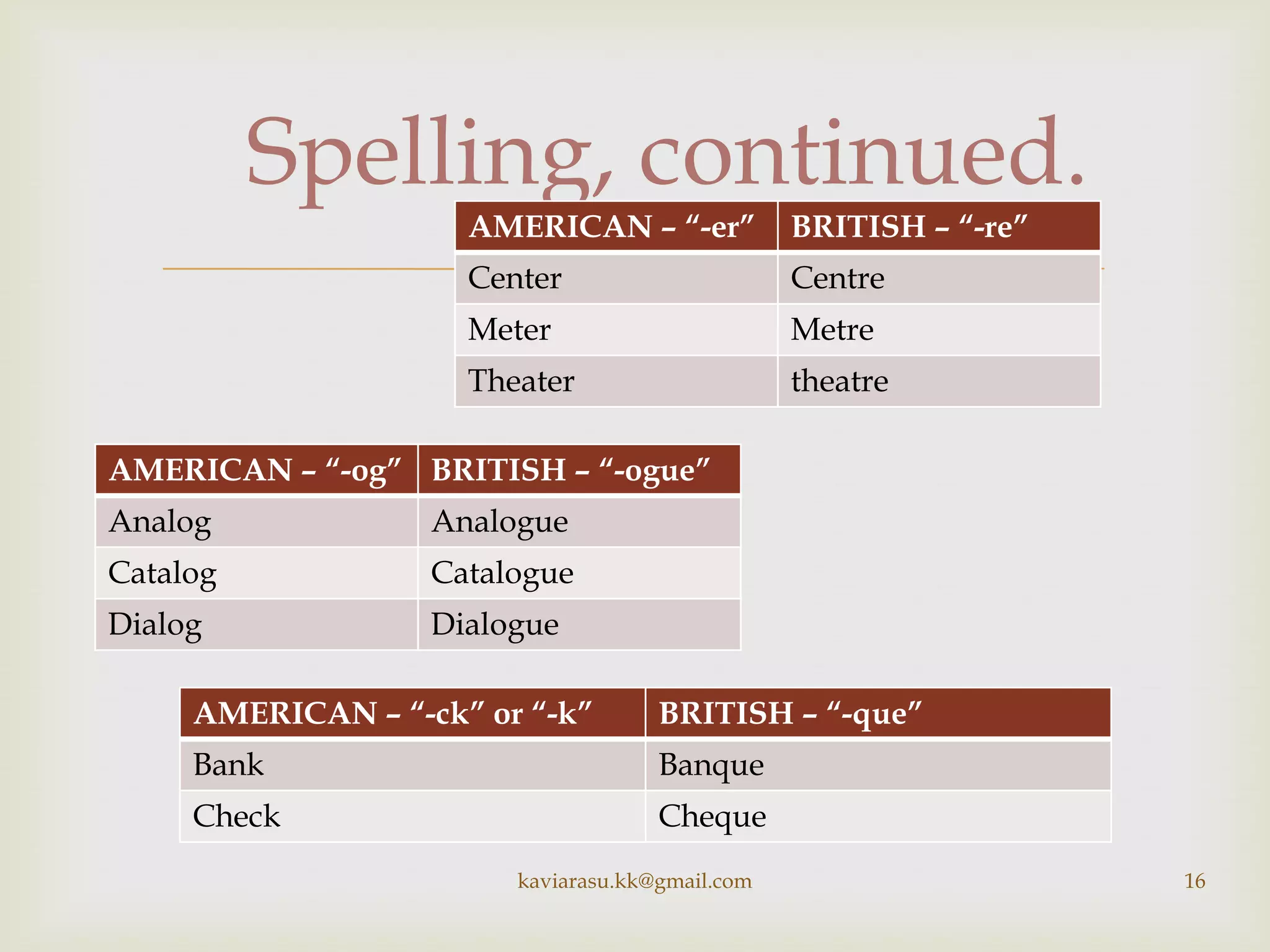The document discusses the evolution of American and British English from a shared origin in Old English brought to America by early settlers in the 1600s, to the development of distinct dialects over time due to divergent influences, with Noah Webster playing a key role in standardizing American English through his dictionaries in the early 1800s.


























![Pronunciation
Differences
British English American English
[o] in spot [a:] in spot
[a:] in fast [ae] in fast
[t‟] in better [d] in better
[r] – sometimes silent [r] pronounced
everywhere
[ɪ] in privacy [aɪ] in privacy
kaviarasu.kk@gmail.com 27](https://image.slidesharecdn.com/britishandamericanenglish-120811025423-phpapp01/75/British-and-American-English-27-2048.jpg)

![Differences in spoken English
AE BE
dance [dæns] [da:ns]
not [nat] [not]
fast [fæst] [fa:st]
clerk [klэ:k] [kla:k]
class [klæs] [kla:s]
kaviarasu.kk@gmail.com 29](https://image.slidesharecdn.com/britishandamericanenglish-120811025423-phpapp01/75/British-and-American-English-29-2048.jpg)


















